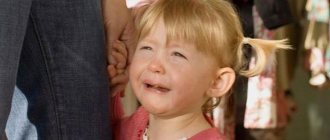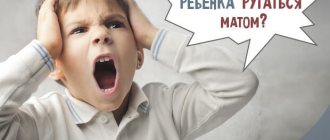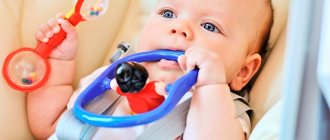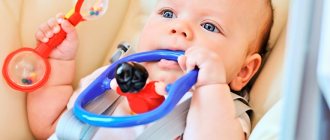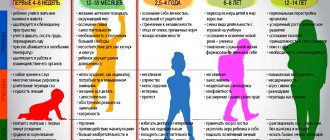Hyperactivity disorder (ADHD) is currently recognized as one of the most common behavioral disorders. As a rule, it is diagnosed in the first years of life, when hyperactivity . Many believe that this disease does not occur after adolescence. In reality, adults face hyperactivity.
Medical research shows that ADHD, even with early treatment, persists in 65% of those diagnosed with the disease. In some cases, psychiatrists and psychologists diagnose hyperactivity in a patient for the first time as an adult. This is often due to an error in the diagnosis earlier. They are often mistakenly attributed to manifestations of depressive disorders or anxiety syndrome. To successfully relieve symptoms, hyperactivity treatment is recommended at a very early age.
What to do if your child has hyperactivity
ADHD is most often diagnosed in childhood. Most often, parents of restless babies or teaching staff of children's educational institutions turn to specialists. The child understands others well. He hears and fulfills the requests of adults, but is too impulsive to accurately carry out the instructions received.
Adults often try to justify all the child’s pranks with this diagnosis. In reality, it is confirmed in no more than 3-5% of babies. Most of them are boys. The course of the disease differs:
- boys show a tendency to aggression and are characterized by hypertrophied disobedience;
- girls suffer from inattention, which can lead to learning problems.
In a third of children, ADHD goes away on its own during adolescence, without the use of specialized medical practices and medications.
Parents hold two polar points of view on the treatment of ADHD. About half consider the possibility of such a pathology to be far-fetched and refuse therapy, believing that the disorder will go away on its own with age. On the contrary, many parents exaggerate the danger of this disease for the development of the child. Hyperactivity requires mandatory monitoring by doctors and appropriate adjustment; in most cases, the pathology is successfully cured. Parents need:
- undergo a comprehensive examination to accurately establish a diagnosis;
- follow the specialist’s recommendations to create the most comfortable conditions for the child, carefully monitor the baby’s condition;
- fulfill all requirements, go through all necessary procedures;
- attend a consultation with a family psychologist.
A child with ADHD is characterized by an increased level of emotionality. He needs to be praised often, increasing self-esteem and self-confidence. In games, it is recommended to exclude competitive aspects that can lead to negative effects on the psyche. It is imperative to set boundaries for the child’s behavior. For example, give simple and executable instructions (take out the trash, wash your cup after yourself and other small tasks). The baby should grow up in the most favorable conditions, but clearly understand the boundaries of behavior so as not to become overly spoiled.
It is advisable to carry out diagnostics in a specialized medical center. Only in such a situation can a neurological disorder be confirmed, excluding simple increased activity or poor upbringing. A preliminary assessment of the condition can be carried out at a local clinic.
Treatment
In order to help children overcome the difficulties of their condition, it is necessary to make a correct diagnosis. It is better if specialists do this, because parents are often prone to exaggeration. Mandatory consultation required:
- pediatric neurologist;
- preschool psychologist;
- psychiatrist.
Additional studies, ultrasound or MRI of the brain may be required.
When raising children, it is very important to coordinate the actions of parents, relatives (if they take an active part) and educators. You may need therapeutic treatment, which includes:
- taking medications to reduce anxiety;
- medicinal herbal decoctions, soothing teas;
- complete nutrition for a growing child's body.
Such treatment will lead to the desired result only with regular therapy. An integrated approach is also important, in which several types of treatment are combined. In terms of psychological impact, several rules can be distinguished:
- strictly dose emotional and intellectual stress;
- highlight not negative character traits, but positive qualities;
- minimize emotional shocks: a strict ban on scary and aggressive cartoons and programs that convey anxiety;
- include physical activity in your daily routine;
- surround all family members with a friendly environment.
Family relationships are the main component of success in therapy. In order for the treatment to be successful, it is necessary:
- uniform behavior of both parents on all significant issues;
- frequent active recreation in nature and cultural leisure;
- a ban on indulging whims, but great attention to such children;
- a clear hierarchy in the family: the husband is the head of the family, the mother is the assistant and soul of the family, children are loved ones, but not the main members of the family;
- ban on frequent punishments;
- a friendly and comfortable environment in the house not only for children, but also for all family members, so that the child does not become selfish.
Treatment of children diagnosed with ADHD should be imbued with love and care. No matter how much time you devote to therapy each day, it is more important that your children feel needed and loved.
Treatment of hyperactivity in children
In medical practice, several options are used to treat hyperactivity in children. First of all, a thorough examination of the small patient is carried out. One of the main goals is to exclude potential pathology.
Further, experts prefer to prescribe non-drug courses. Psychological, pedagogical and psychological methods are used in the work. Participation in the treatment process of the whole family becomes an important condition. For this purpose, specialized family practices are used. This will allow you to establish contact with a child suffering from hyperactivity and develop a treatment program.
In acute situations and in the absence of effect in treatment using psychological classes and trainings, the following medications are selected:
- depressants are prescribed, Amitriptyline, Methylphenidate;
- Focalin, Vyvanse, Methylin contribute to increasing the level of concentration;
- glycine helps improve brain function;
- nootropic drugs Phenibut, Pantogam and others.
All of these medications are used simultaneously in the treatment of a child in exceptional cases. An individual therapy program is developed for each little patient.
Hyperactivity syndrome in children
It is possible to assume that a child has such a diagnosis at a very early age. Already in the first months the child sleeps poorly. He has an excessively violent reaction to noise and bright light. He reacts violently to hygiene procedures and gets overexcited during the simplest games. There is a slight lag behind the norm in psychomotor skills.
The presence of the disease can be determined at the age of three years. Psychologists mark this age as the first turning point. All kids become capricious and demanding. Children with hyperactivity have a delay in speech development, movements are fussy and chaotic.
The syndrome is accompanied by physiological disorders. The baby often experiences headaches, increased fatigue, and is diagnosed with enuresis and nervous tics.
In the preschool years, children with the syndrome are slower than their peers to learn new material, which is explained by their insufficient ability to concentrate. This situation continues after entering school. The lag in the assimilation of knowledge is caused not by low mental abilities, but by the lack of the ability to concentrate attention and fully remember all the new material.
Emerging problems provoke increased sensitivity and aggressiveness in the child. He becomes anxious and whiny, and phobias develop. As a child with ADHD grows up, self-esteem decreases and complexes arise. Without treatment, they can last a lifetime.
Attention deficit
Attention is the ability to manage your reaction to an avalanche of information coming through the senses , and to choose what is truly valuable from this chaos. With attention deficit, this ability is formed with a delay of several years. The child is already six, he is already sitting in classes at the gymnasium - and his attention randomly wanders around the classroom and the outside world, like a two-year-old.
“Well, what kind of attention deficit? - Parents are sometimes indignant. - He can watch TV for two hours! Or play on the computer! Or collect a construction set! When he’s interested, there’s no trace of attention deficit, which means he’s just lazy.”
“He’s just being lazy” is a subject for another discussion. And the ability to concentrate for a long time on what is interesting can be explained very simply: it is the same involuntary attention that works. The flickering of bright colors on the screen and the jumble of loud sounds completely occupy the child’s attention, he even forgets to run and climb. He may also be absorbed in playing in the yard or playing with a construction set: they stimulate his attention so powerfully that sometimes they even suppress loud alarm signals coming from the bladder.
Attention deficit can be observed without hyperactivity . Some researchers believe that this is an independent disorder altogether. An inattentive child without hyperactivity is not too easy to notice: he does not bother anyone, does not catch the eye - he sits on the side while the group reads and plays with cars. Or draws princesses in a notebook while taking a math test.
Sometimes attention deficit in such children is revealed only at school, when it turns out that the child cannot cope with his studies. He's in the clouds, looking out the window, chatting with his girlfriends.
Western researchers often draw attention to the fact that this form of the disorder is especially common in girls and very often is not detected and diagnosed, and the child does not receive the necessary help.
Diagnosis of hyperactivity
Children suspected of having ADHD are under the constant supervision of their attending pediatrician. In this case, a neurological diagnosis is not established earlier than 5-7 years. This is due to the developmental characteristics of preschool children. Child psychologists try to diagnose only after the completion of the transitional age crises of 3 and 7 years.
Diagnosis is carried out by a child psychologist together with a neurologist and pediatrician. Consultation with several specialists makes it possible to exclude other diagnoses that lead to increased activity and excitability. Also, during diagnosis, doctors reassure parents that their baby’s increased excitability, restlessness, is only a manifestation of character.
The baby’s condition is monitored from the first weeks of life. If hyperactivity is suspected, the doctor conducts a thorough analysis of the child’s behavior in everyday life.
Diagnostics includes three stages:
- a conversation between a child psychologist and the child’s parents;
- researching;
- obtaining advice from the pediatrician treating the baby.
To confirm the diagnosis in a hospital setting, EEG, REG, M-Echo, MRI are performed. Before conducting research, it is recommended to keep your child busy with an interesting game. You can give a mild sedative.
Diagnosis of ADHD
Who can diagnose a child with ADHD?
Only a doctor - a psychiatrist or neurologist.
A psychologist, teacher or educator can only note the child’s difficulties, make an assumption and recommend seeking advice from a specialist.
The doctor examines the symptoms, makes a diagnosis, prescribes treatment and, depending on the characteristics of the manifestation of difficulties, recommends classes with a psychologist, speech pathologist, or speech therapist.
Symptoms of hyperactivity
Doctors recommend conducting studies to confirm the diagnosis at the age of 5-12 years. The child has already gone through the first transitional periods and his character has been formed. But the first signs of this neurological disease appear much earlier. Parents are advised to pay attention to:
- the baby begins to hold his head up, crawl, walk, and sit earlier than his peers;
- sleeps less than normal and has difficulty falling asleep;
- They are highly sensitive to sharp sounds, bright light and other unexpected factors.
Children with ADHD often experience autonomic disturbances. There may be frequent stomach upsets and diarrhea. Allergic reactions often occur.
Among the neurological symptoms, the main one is impaired concentration. The baby has difficulty concentrating on one activity or subject. He avoids cyclical affairs. A child can become attentive only during one-on-one lessons with a teacher. Movements are chaotic. The baby's facial expressions are expressive. He speaks quickly, often slurring his words and jumping from one topic to another. The baby is impulsive and, when choosing a course of action, is guided only by his own desires. Indicative symptoms include frequent mood swings and a tendency to take risks.
All manifestations are associated with the vulnerability of the nervous system of a child with ADHD, which finds it difficult to process a large amount of information coming from the outside world.
Additional symptoms include:
- impaired communication with peers;
- the occurrence of problems in learning with a normal level of intelligence;
- delay in emotional development;
- low self-esteem that develops at an early age.
Hyperactivity also has its positive sides. Children are active, they are mobile and active. They perfectly “read” the mood of the interlocutor and for the sake of people
Tip one - mode
So much is said about this daily routine - as if it were some kind of panacea! Indeed, a routine is very important for children. And for a hyperactive child - doubly so.
Habitual routine, sleep, rest, exercise and walking should occur at the same time.
Gradually, the child’s body itself will begin to tune in to the desired type of activity, which means that it will be much easier for an active energizer to extinguish excitement and cope with an excess of emotions.
Introduce family traditions and rituals. For example, the morning can begin with the same song on the stereo, affectionate hugs accompanied by a familiar rhyme, in the evening - hygiene procedures, a glass of kefir, and a bedtime story begin at the same time and in strict sequence.
Everything new and unusual causes overstimulation of the child’s nervous system. In response to this, he behaves, according to adults, inappropriately - screaming, running, fussing. Don't change the rules. Ritual is very important for children with ADHD. If it’s time to go to the bath at 9 pm, then so be it, you’ll have to organize your affairs taking into account the children’s regime.
Causes of hyperactivity
Among the causes of the violation:
- unfavorable course of the mother's pregnancy, including smoking and drinking alcohol during pregnancy;
- neurological disorders during intrauterine development, for example, fetal hypoxia, asphyxia at the time of birth, premature birth;
- the influence of the family atmosphere on the development of the child in the first months of life, frequent scandals of parents, malnutrition and other unfavorable factors.
The likelihood of hyperexcitability increases as the number of these factors that appear together increases.
Diagnosis of hyperactivity
Such a diagnosis can only be made by a specialist after conducting a series of studies. In recent years, this neurological disorder has been identified as a separate pathology. The diagnosis is officially accepted in international medical practice.
Confirmation of the diagnosis indicates the presence of a chronic neurological disorder. Without the necessary treatment, it can last a lifetime. Without therapy, the disease develops in three directions:
- the child stops believing in himself and withdraws;
- he may experience serious mental disorders, he will begin to live in an imaginary world;
- cope with the pathology on their own, but with great difficulties.
Timely initiation of therapy will help correct the course of the pathology and make the prognosis favorable.
Correction of hyperactivity
It is important for parents to monitor their baby’s development from the first days of life. Especially in the case of the presence of negative factors that accompanied the bearing of a child and its birth.
A careful attitude towards the baby in the family will help eliminate ADHD. The home should have a calm and favorable environment. Parents are not recommended to raise their voice to the child or be overly demanding of him.
It is important to form adequate self-esteem in a child from a very early age, praising small actions successfully performed and calmly paying attention to possible mistakes made. They are inevitable, but you should not put too much emphasis on them, causing the child to feel guilty. The support of elders in all endeavors is important for a child. He should have a calm daily routine with the obligatory presence of daily walks with active games, the formation of habits in the field of proper nutrition helps in controlling hyperactivity.
Such careful attitude is required for any child, but the implementation of such corrective rules is mandatory in families with a hyperactive child. It is important for parents to regularly consult a doctor for behavioral diagnosis. In case of acute conditions, the doctor prescribes a set of corrective medications. Only specialists can prescribe any medications. Independent therapy in choosing a course of treatment is prohibited.
Advice for parents of a hyperactive child
Self-care
Take care of your own resources and ways to recuperate. A hyperactive child requires a lot of attention and patience. Parents of hyperactive children often experience increased anxiety, irritability and a tendency to self-blame.
When you're exhausted, ADHD can be difficult to cope with, so it's important to develop a series of activities and activities to help you recover. Meet with friends, undergo psychotherapy, take care of proper sleep and rest.
Specialist support
Get advice from specialists working with ADHD: a doctor, psychologist, speech pathologist, speech therapist (if necessary). Agree on remedial classes for your child.
It is almost impossible to cope with ADHD without the help of specialists.
Host environment
Explain to close relatives and teachers who work with your child about his or her characteristics. Ask them to help with correction and explain how to better communicate with the child and how you can help him.
Microclimate in the family
Conflicts between adults and family dysfunction usually increase symptoms and aggravate the condition of a child with ADHD.
The number of divorces in families with an ADHD child is 2 times higher than the statistical one. Therefore, it is important for parents to support each other in their efforts to overcome the child’s difficulties, rather than quarrel over parenting methods.
Environmental friendliness in education
Avoid yelling and physical punishment when raising a hyperactive child (however, this applies to all children).
It is important to understand that a child does not listen and is distracted not because he does not want to do the right thing, but because he cannot.
By making excessive demands on your child, you risk causing him to have a nervous breakdown, causing emotional difficulties and other illnesses. Screaming, punishment and aggression will definitely not improve the situation, but they may well worsen the condition.
Praise your child often for his efforts, especially when the activity requires concentration.
"Hugs"
Physical contact is very important for such children. Hug your child, hold him close to you in difficult situations when he cannot cope with emotions or excitement.
Maintaining a daily routine
The clearer your daily routine, the easier it is to manage your ADHD symptoms.
Nutritious food
Limit sweets in your child’s diet, make sure there is enough protein (meat, fish) and microelements in the food.
Organization of space
Help your child structure and conveniently organize the space in which he lives.
Hyperactive children find it difficult to put everything away and put things in order on their own. It makes sense to buy a lot of multi-colored containers, label them (for preschoolers you can stick the corresponding pictures), teach them to classify and put things in their places (otherwise, such children’s rooms are usually a mess).
Markings and stickers
Since hyperactive children are often distracted and forget things, make lists together (permanent and temporary), label things if possible, and leave reminder stickers.
Taking care of your health
Take care of maintaining the general health of the child, carry out preventive health measures.
The fact is that a sick child will be more disinhibited and inattentive. In some cases, even a change in season can cause an exacerbation of ADHD symptoms.
If you observe an exacerbation of ADHD symptoms, it makes sense to consult a doctor and, in difficult conditions, agree to treatment on an outpatient basis, in a day hospital or in a hospital in order to select drug therapy.
Sport
Choose a sports section for your child. Competitive sports are usually contraindicated for children with ADHD, and sports that require team play are also difficult for them (due to impulsiveness and communication problems).
Swimming, skiing, tennis, wushu, horse riding, and rhythmics are perfect.
Train your attention
Play games with your child that promote the development and training of attention. Such games and exercises can be found on the Internet or buy a book.
Development of communication skills
Try to develop your child's communication skills. Discuss failures in communication, explain the rules in communications. You can read corrective fairy tales and stories with preschoolers.
Caring for the psyche
Protect your child with ADHD from overwork, large crowds of people, and public events. All this leads to an increase in hyperactivity.
Relax
Teach your child to relax and relieve tension. These can be specially selected games and exercises or art therapy methods.
Children with ADHD are encouraged to work with paints, clay, and be creative.
Use useful apps
For example, the “Where are my children” service.
Hyperactivity in adults
For a long time, ADHD was considered a disease that occurs only in young patients and goes away as they grow older towards adolescence. Research in recent years has confirmed that hyperactivity can occur at any age. As a rule, diagnosis in adults is associated with an error in determining the causes of hyperactive behavior in early years. This caused errors in treatment. Sometimes the disease was simply not diagnosed.
Adult patients experience symptoms similar to those of the disease in childhood. Due to adaptation, most adult patients are characterized by increased excitability and hyperactivity. This leads to symptoms:
- difficulties when working according to instructions;
- patients are unable to maintain attention when performing monotonous and tedious actions;
- have weak organizational abilities;
- execute several processes simultaneously without completing the action;
- are forgetful when performing daily duties, may forget objects and goals;
- unable to control the volume of the voice or remain patient, for example, when standing in line;
- interrupting the interlocutors' statements;
- swiftness and variability of behavior;
- increased irritability.
Experts note other factors as well. A positive feature of ADHD in adult patients is high performance. They often successfully build a career, reaching significant career heights. The disadvantages include the occurrence of problems in interpersonal communication, which often interfere with maintaining a high quality of life. Including destructive interpersonal connections with low adaptation. Treatment for hyperactivity can begin at any age. Patients are prescribed corrective medications and undergo individual and collective psychological training.
Hyperactivity in schoolchildren
During school years, ADHD causes problems with mastering the educational program. A low level of ability to maintain attention during lessons and a lack of willingness to concentrate while doing homework causes a significant decline in academic performance. Lack of control on the part of doctors leads to increased anxiety.
Schoolchildren suffering from hyperactivity fall into the category of unsuccessful students, despite the ideal state of intellectual abilities. The child becomes nervous and hot-tempered. His self-esteem decreases.
Why is this a problem
Adults usually do not pay attention to the child’s behavior, believing that he will “outgrow” with age. And they turn to a doctor only when the problem simply cannot be ignored.
In kindergarten, the problem is just beginning to develop. But when the child goes to school, the signs begin to be expressed more clearly. The educational process requires organization of classes, that is, this is exactly what the baby is not prepared for. Poor concentration, active mobility and inappropriate behavior in class make a full-fledged educational process impossible.
Children with increased activity constantly need the supervision of a teacher, since it is very difficult to focus the child’s attention on the educational process, he is constantly engaged in extraneous matters, is distracted, and lacks attention. The teacher's patience and experience are often not enough to correct destructive behavior. A reverse reaction begins to form—aggression.
The development of such children lags behind their classmates. Teachers cannot adapt to the developing pathology, this leads to conflicts. A hyperactive child at school is often subject to bullying by peers, and he develops problems with communication. They don’t want to be friends with him; this causes resentment, attacks of assault, and aggression.
The tendency to lead due to the impossibility of being one begins to give rise to the development of low self-esteem. After a certain time, isolation develops. Psychological problems appear more pronounced.
Many parents are frightened by this diagnosis. They may believe that their child is developmentally delayed. This is a wrong opinion, because in fact a hyperactive baby:
- Creative. He has many interesting ideas, and his imagination is very rich. If mom and dad help the child, in the future he will be able to become a wonderful specialist with a creative approach to business or a representative of a creative profession with multifaceted interests.
- He has a flexible mind, is distinguished by enthusiasm and the ability to find solutions to complex problems. He is versatile, has many interests, and strives to be the center of attention.
- Energetic and unpredictable. This property can be both beneficial and negative. The baby has a lot of strength for different activities, but it can be almost impossible to keep him in place.
There is an opinion that a hyperactive baby is always on the move and moves chaotically. This is not entirely true. If any activity absorbs all the attention of a preschooler, he may forget about everything else. It is important for parents to encourage hobbies by allowing them to choose what to do.
The symptoms of hyperactivity in a child and his intellectual abilities are in no way connected. Very often these guys are very talented. In addition to treatment, they need to be educated, kept within clear boundaries, trying to develop their natural abilities. They often dance, sing, and perform in public wonderfully.
Manifestation of hyperactivity
People with this neurological disorder tend to:
- inability to concentrate on performing monotonous routine actions;
- a patient with ADHD is unable to concentrate while maintaining a conversation;
- he can be irritable and moody, prone to mood swings;
- Such people are characterized by impulsiveness and a tendency to take risks.
Diagnostics are necessary to identify pathology. Often these symptoms can accompany a certain eccentricity of a person who does not have neurological pathologies. They also accompany some complex psychiatric disorders.
An examination is recommended for an accurate diagnosis. This will allow us to develop an effective option for complex therapy that provides comprehensive and qualified care. Treatment of hyperactivity is carried out on an outpatient basis. In most cases, psychological therapy is carried out without the use of drugs or the use of drugs in minimal dosages.
Hyperactive child: what to do?
Do not panic
With properly organized rehabilitation and correction of difficulties, the child’s condition improves significantly.
Get treatment
Since there is no single cause of ADHD, the approach to overcoming difficulties must be multifactorial. There is still no single effective treatment method for overcoming ADHD (at least in our country), but with an integrated approach to the problem it is quite possible to cope with it.
The goal of drug therapy is to alleviate the symptoms of ADHD when behavioral or cognitive disorders cannot be managed with the help of behavioral therapy, correctional sessions with a psychologist, or psychotherapy.
In most cases, it is advisable to start with psychological consultation of the child’s family and psychological correction, and it is advisable to combine all this with treatment. You need to understand that pills are sometimes necessary, but you shouldn’t rely on them alone. It is imperative to visit specialists who work with such children.
Work with a psychologist, speech pathologist
Depending on the age and difficulties of the child, the psychologist and defectologist build a program for the prevention or correction of disorders. All this work is aimed at reducing impairments, increasing the child's learning ability and improving communication.
Take a course of neuropsychological correction
This is a special set of psychological techniques that help restructure brain functions and create compensations in a child so that he can better regulate his behavior and learn more effectively.
The neurocorrection complex includes stretching, exercises for the tongue and jaw muscles, cross movements, exercises for the development of motor skills, relaxation, etc.
The minimum number of classes per course is 16. Plus, it is imperative to do exercises at home between visits to a neuropsychologist.
Inclusion of parents and the child’s immediate environment in rehabilitation, explaining to them the features of raising a hyperactive child and communicating with him
It is important for parents of children with ADHD to learn not to interact with their child in an overprotective and permissive manner, and at the same time to avoid excessive demands that the child is not able to fulfill.
Hyperactivity in preschool children
ADHD in children who have not yet reached school age has certain characteristics. Hyperactivity in patients is observed from a very early age, which indicates an innate predisposition to potential disorders. However, doctors do not recommend making a diagnosis confirming a neurological disorder before the age of 5-12 years.
This is due to the peculiarities of the formation of the psyche of a small child. Many children are characterized by increased emotionality, which does not indicate the presence of pathology. Additionally, behavior is affected by the first crises of adolescence, which a person experiences with varying degrees of severity during the period of approximately three and seven years. At this time, every child becomes capricious and begins to attract the attention of adults, becoming either too passive or hyperexcitable.
In preschool age, parents or teachers can only pay attention to a certain predisposition of the child to the future development of pathology. If symptoms persist for months and years, parents should carefully monitor the child’s behavior, pay attention to his communication with peers, and educational progress. Confirmation of the diagnosis is carried out only after a minimum of five years of age.
Hyperactivity syndrome is a pathology that, without proper treatment, can significantly worsen the patient’s quality of life at any age. This neurological diagnosis will be monitored by experienced specialists. The help of doctors and relatives ensures proper adjustment of the behavior of people suffering from ADHD.
When can you be inattentive?
It is normal for a very young child to be inattentive. He instinctively reacts to bright, loud, tasty things. This is involuntary attention .
Restlessness can be noticeable quite early: even at two or three years old, an active child attracts attention to himself against the background of others: everyone listens to the teacher read or color a picture, and he runs around. But it’s too early to talk about inattention. Moreover, to be diagnosed with ADHD.
Recently, more and more often, parents complain about inattention and inability to concentrate on classes in two-year-old and three-year-old children. But this is a physiological norm! Two-year-olds should not be slogging through math. They are supposed to be playing, not preparing for school.
With age, the child becomes able to focus his attention on something important, concentrate, and not be distracted by trifles. This is voluntary attention. The child no longer automatically reacts to every stimulus (a crow flew by, a fly buzzed), but sorts incoming signals into important and unimportant ones, cuts off the unimportant ones, and concentrates on the important ones. This ability is formed by the age of four; after this age one can really talk about attention deficit.
